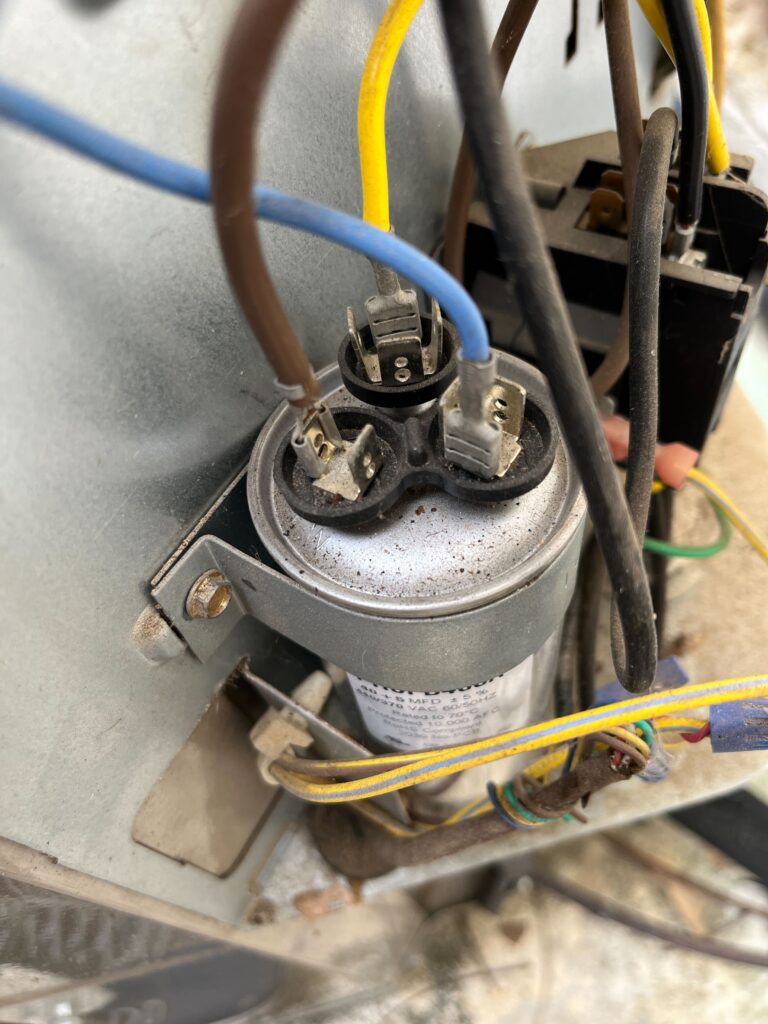AC: Blown Capacitors and How HomePoint Ensures Reliable Repairs
Air conditioning (AC) units are crucial for maintaining comfort during the hot summer months, especially in regions like Austin, Texas. While several issues can cause an AC unit to fail, one of the most common yet often overlooked culprits is a blown capacitor. Understanding this issue and knowing how to address it can save homeowners from discomfort and expensive repairs. At HomePoint, we ensure our members receive timely, high-quality service to keep their AC units running efficiently.
What is a Capacitor and Why is it Important?
A capacitor in an AC unit functions much like a battery, storing and supplying electrical energy necessary to start and run the unit’s motor. There are typically two types of capacitors in an AC system: the start capacitor and the run capacitor.

When a capacitor fails, the motor won’t start or will struggle to run, leading to a system breakdown.
Signs of a Blown Capacitor
Identifying the signs of a blown capacitor early can prevent complete system failures. Here are some common indicators:
- Condenser Fan and/or Fan Motors Not Working: Typically, if the condenser fan or fan motors are not working, the AC unit will blow air but it won’t be cool. This can be a sign of a capacitor issue.
- Physical Signs: A damaged capacitor often shows visible signs of failure, such as being burst, burnt, or leaking. Checking the capacitor for these signs can help diagnose the problem quickly.
Why Capacitors Fail
Capacitors can fail for several reasons:
- Age and Wear: Over time, capacitors degrade and lose their ability to store and discharge electricity.
- Electrical Issues: Power surges or fluctuations can damage the capacitors.
- Overheating: Excessive heat can cause capacitors to swell or burst, rendering them ineffective.
The Cost of Capacitor Replacement
AC companies typically charge between $300 and $500 for capacitor replacement. During peak seasons, the minimum can go up to $400. Additionally, many companies use inferior parts, which may not ensure long-term reliability. This lack of incentive to use high-quality components means homeowners could face recurring issues.
HomePoint’s Commitment to Quality Service
At HomePoint, we prioritize using high-quality parts and providing exceptional service to our members. Here’s an example of how we manage AC issues effectively:
A HomePoint member emailed us at 7:30 AM reporting a non-functioning AC. By 9:00 AM, our technician arrived, and within 30 minutes, we replaced the blown capacitor with a high-quality US made part. The total bill was just $63, significantly lower than typical market rates.
Proactive Maintenance and Preventive Care
While blown capacitors are a common cause of AC failures, clogged condensate lines are another frequent issue that can lead to significant problems. Regular maintenance can prevent these issues from arising. HomePoint’s quarterly preventive maintenance services include checking and cleaning condensate lines and inspecting capacitors to ensure they are in good working condition.
For more details on how clogged condensate lines affect AC performance and how to prevent it, you can read our detailed guide here.
